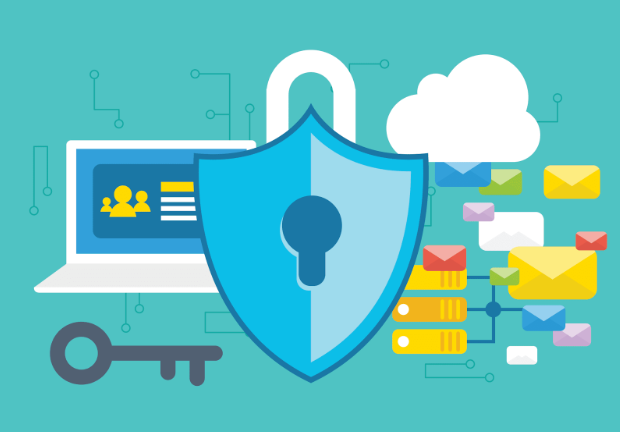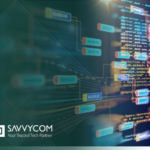Unlocking Data Fortress: A Guide on How to Secure CRM Software and Ensure Data Privacy
Software for managing customer connections (CRM) has grown into an indispensable resource for firms in managing their clientele and interactions with consumers. However, since more and more confidential information is housed in digital management infrastructure, it is imperative that businesses put strong CRM safety precautions in place to defend themselves against cyberattacks and maintain the confidentiality of data.
Serious repercussions from a hacking incident might include impairment to one’s credibility, economic and legal repercussions, and an overall loss of customer confidence. As a consequence, protecting personal information and safeguarding CRM software are now obligations that must be fulfilled in an organized way rather than being options.
However, as businesses become increasingly reliant on these systems to store and manage sensitive customer information, the risk of cyberattacks and data breaches grows exponentially. A compromised CRM system can lead to devastating consequences, including:
- Reputational Damage: A data breach can erode customer trust, negatively impacting your brand’s reputation and leading to lost business.
- Financial Losses: Data breaches can result in direct financial losses due to fines, legal fees, remediation costs, and stolen funds.
- Legal Penalties: Depending on your industry and location, you might face significant legal penalties for failing to protect customer data, especially if you don’t comply with regulations like GDPR or HIPAA.
- Loss of Customer Trust: Perhaps the most significant consequence, a breach can severely damage customer trust, making it harder to attract and retain customers in the future.
In this comprehensive guide, we’ll learn how to secure CRM Software and ensure data privacy , explore multi-faceted best practices to ensure data privacy, and provide actionable recommendations to help you safeguard your most valuable asset – your customer data.

Secure CRM Software
What are the typical CRM security threats?
CRM systems are susceptible to myriad online attacks, all of which possess the potential to impact the privacy and security of sensitive data negatively. Let’s examine some common ways that customer relationship management (CRM) platforms are compromised before moving on to how to safeguard CRM software and protect data security:
- Malware: Various forms of malware like viruses, ransomware, and trojan horses can infiltrate CRM systems. Ransomware, in particular, can encrypt critical customer data and demand a ransom payment for the decryption key. The average ransomware payment surged in 2022, increasing by over 40%. (Sophos State of Ransomware 2023). In 2021, a ransomware attack on the Colonial Pipeline caused severe disruptions to fuel supplies in the United States, demonstrating the widespread impact of such attacks (BBC News: [[invalid URL removed]]).
- DDoS Attacks: These attacks flood your CRM with overwhelming traffic, hindering legitimate user access. They can result in system downtime, lost productivity, and potentially open the door for data exfiltration during the disruption. According to a Cloudflare report, DDoS attacks increased 79% year-over-year in 2022, highlighting their growing prevalence ([[invalid URL removed]]).
- Phishing: This social engineering tactic, often disguised as legitimate emails or messages, targets your employees. Successful phishing attempts lead to stolen login credentials, giving hackers unauthorized access to your CRM and its sensitive data. Phishing remains a top threat, with Verizon’s 2023 Data Breach Investigation Report (DBIR) finding that 36% of data breaches involved phishing.
- These assaults entail tricking users into divulging essential data, like login passwords or banking details, by sending texts or emails that seem to be from an authentic source, like an accredited supplier or company collaborator. Installing a code signing certificate on your website can be an optimal way to protect your site from phishing attacks.
- Insider Threats: Employees, contractors, or ex-employees with access to your CRM can expose it to risk, whether intentionally (malicious intent) or unintentionally (through negligence or accidental data exposure)
- Zero-Day Vulnerabilities: These are software flaws unknown to the vendor and therefore, unpatched. Hackers can exploit these vulnerabilities before a fix is released, making timely software updates even more crucial.
- SQL Injection: This attack targets CRM database vulnerabilities, allowing hackers to manipulate and steal sensitive data. SQL injection attacks remain one of the most critical web application security risks according to the Open Web Application Security Project (OWASP).
Best Practices: A Multi-Layered Approach to CRM Security
Protecting your CRM requires a holistic approach encompassing technical safeguards, compliance measures, and human-centric security practices. Here’s a detailed breakdown:
Technical Safeguards
- Data Encryption: Encrypt sensitive customer data at rest (on servers) using robust standards like AES-256 and during transmission with HTTPS/TLS protocols. Consider full-disk encryption for added protection. According to the Thales 2023 Data Threat Report, only 58% of businesses surveyed said they encrypt more than half of their sensitive data, indicating room for improvement in this crucial area.
- Authentication
Make the most of robust methods for authorization to confirm users’ identities when they log into the CRM system. To provide a further level of protection, multi-factor authentication (MFA) may be implemented.
-
Perform Daily Software Updates.
CRM software should be updated often in order to correct bugs and fend off identified attackers. Upgrade all systems and applications with the most recent security enhancements. You must also make sure that your CRM system is compliant with every modification. Furthermore, it is imperative to streamline updates and fixes in order to guarantee their timely deployment without interfering with corporate operations. 57% of data breaches were attributed to unpatched vulnerabilities, reinforcing the need for up-to-date systems (Verizon DBIR 20230).
You need to steer clear of employing weakened methods of encoding that are readily cracked. For the safety of data in movement, you should employ encrypted transmission protocols like HTTPS, SSL/ TLS. Lastly, you must not be employing unsafe forms of communication like FTP or HTTP.
- Multi-Factor Authentication (MFA): Go beyond passwords. Require users to provide an additional authentication factor (code from their phone, biometric verification) when accessing the CRM.
- Strict Access Controls:
Ensuring that solely authorized individuals are able to view confidential information can be accomplished through the implementation of access controls, including role-based permissions and two-factor authentication (2FA). Additionally, it will help safeguard consumer data.
Having access to private data can be restricted depending on an employee’s job duties thanks to role-based access control, or RBAC. RBAC guarantees that workers only have possession of the information they require to carry out their job responsibilities.
For every employee who wants to log into the CRM system, utilize 2FA. By forcing staff to give two forms of verification before accessing confidential information, 2FA brings an extra degree of protection to CRM.
- Intrusion Detection and Prevention Systems (IDPS): Deploy these systems to monitor your network for suspicious activity, detect potential attacks, and block them in real-time.
- Secure Backups: Regularly back up your CRM data to a secure off-site location. Test your backup systems to ensure data recovery in case of a breach or ransomware attack.
Conclusion
Promoting corporate efficiency and preserving consumer trust is contingent upon the safekeeping of CRM data. You can strategically protect your essential data from CRM by choosing a secure CRM program, putting in place administrative, complicated, and human safety policies, and routinely inspecting and updating your system. Therefore, you should adhere to these suggested practices to maintain the confidentiality of your CRM system and lead your company toward growth and economic success.


